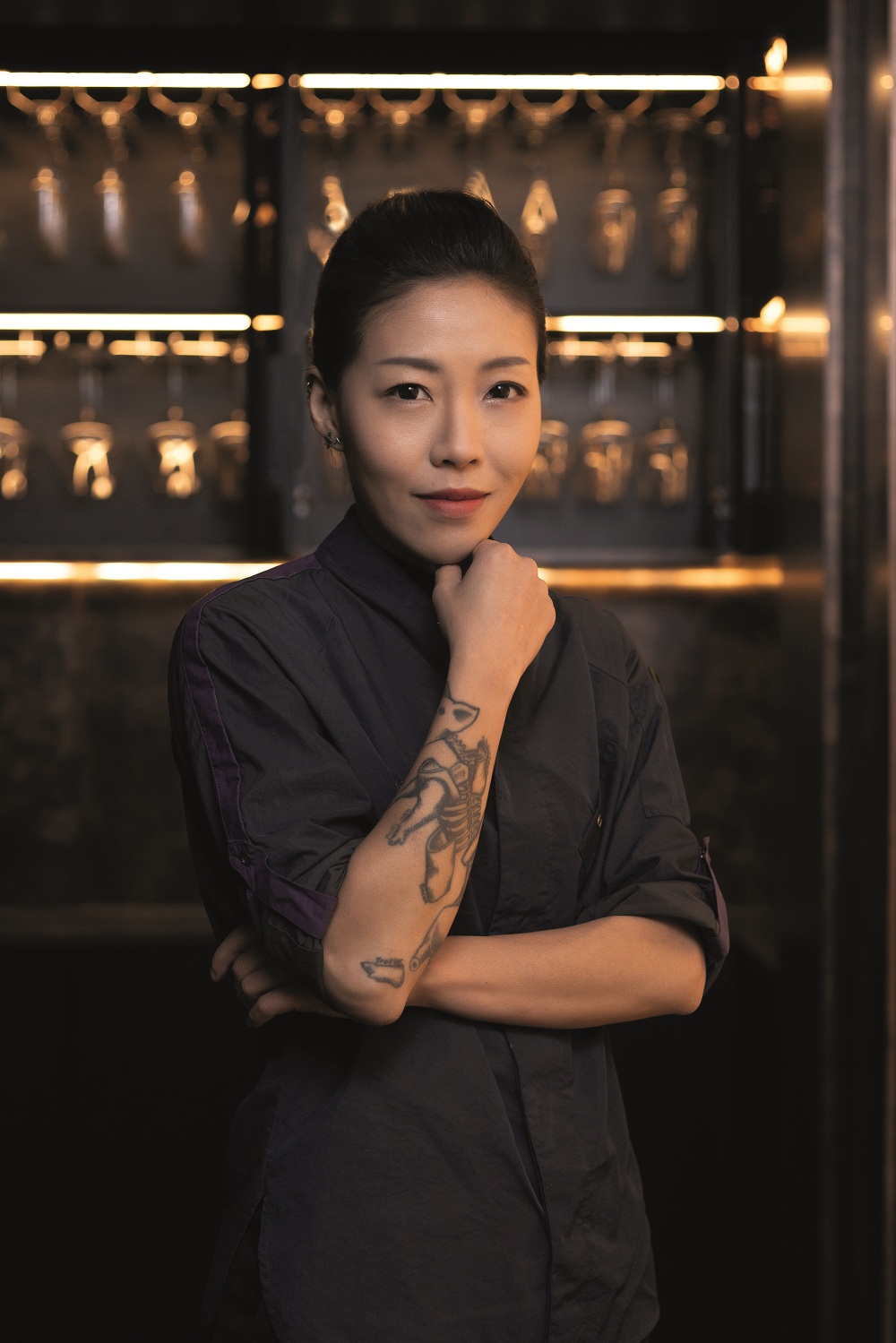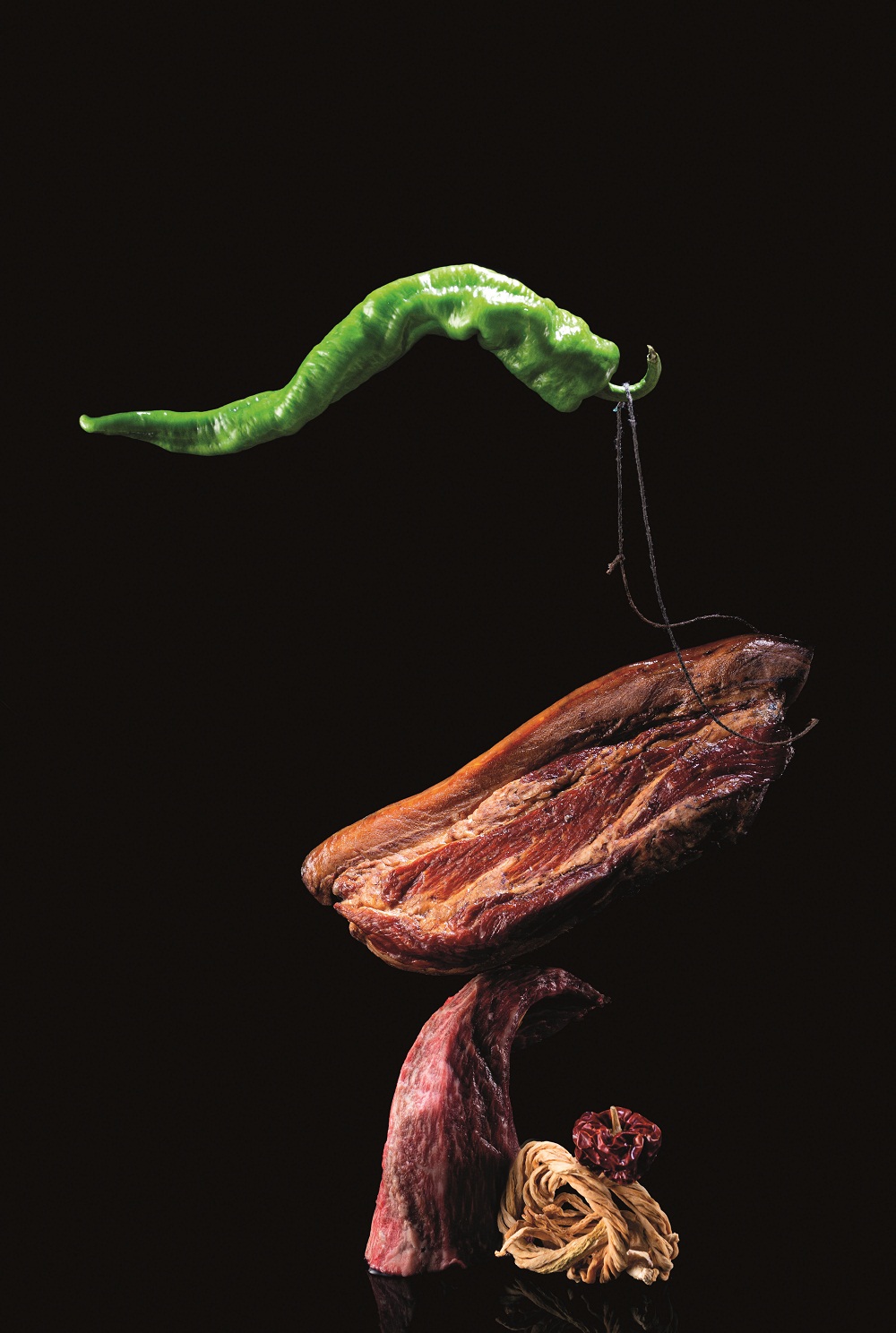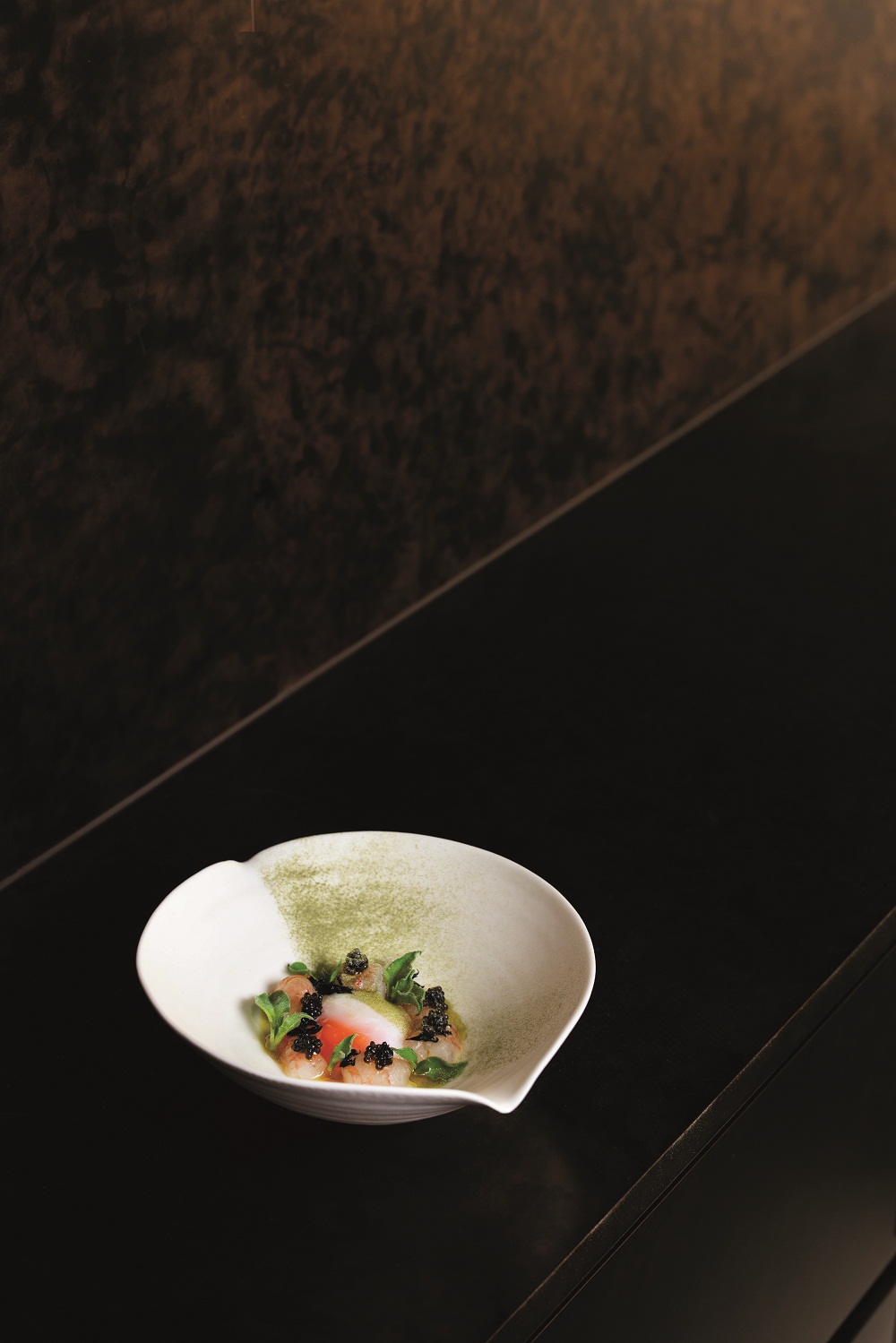DeAille Tam, co-founder and executive chef of Obscura, and recently crowned Asia’s Best Female Chef 2021, talks about her vision for giving fine dining Chinese gastronomy a new identity with no limits

First female chef in mainland China to earn a Michelin star (2018) and now most recently crowned Asia’s Best Female Chef Award 2021, DeAille Tam is a role model and an inspiration for aspiring female chefs all around the world in the usually male-heavy culinary industry. And unlike most other female chefs that dominate the world of patisserie, Tam is clearly defying the odds of sexism, while honing her craft at multiple fine dining restaurants around the world.
Born in Hong Kong and raised in Canada since the age of 10, 37-year-old Tam only discovered her passion for food while pursuing an engineering degree. Although she started off with patisserie, she soon enrolled in the culinary programme at George Brown College in Toronto where she met her partner, Simon Wong. Her parents initially opposed her career choice since her father had owned cha chaan teng in Hong Kong and knew of the hardships being a chef entailed.
However, the couple returned to Hong Kong to work under chef Alvin Leung at Bo Innovation, and moved to Shanghai in 2016 to open Bo Shanghai. The restaurant was awarded a Michelin star just a year after it opened, making DeAille the first female chef in mainland China to lead her restaurant to a Michelin star.
Tam and Wong then spent a year travelling around China, exploring the rich variety and breadth of culinary influences from Sichuan to Yunnan, which culminated in the couple launching their fine dining destination Obscura in Shanghai itself in November 2020. “Obscura means uncertain, limitless, a black hole concept,” she says. “You know there is something interesting happening on the other side of the black hole, something alluring and captivating. Like the name, the restaurant also has no limits. That is what we want: a restaurant that pulls you in. And once you’re sucked into that black hole, we want to capture you with our food.”
Tam’s inspiration for her eclectic style of cooking is a perfect marriage of Chinese heritage with Western products and techniques, her way of paying homage to the citizens of China and their respective cuisines. “There are so many layers of flavour in Chinese food. It gave me such a sense of accomplishment, as well as appreciation for ingredients and how we need to respect them,” she says. “Everything that arrives in the kitchen has had a previous life and we cannot waste it. These things buried themselves very deep into my cooking philosophy.” Tam has high hopes for her country’s cuisine in the future, eager to see restaurants all around the world highlighting the different cuisines of Sichuan,Shanghai and Thaizou.

What makes you tick – your inspirations and passion for China’s culinary heritage in a contemporary context?
I am very much driven by an endless curiosity and passion for what I do. My university studies in engineering helped me to assess things through a different perspective and provided me with a unique insight into the behavior of ingredients when different techniques are applied. I approach food with a scientific base but am also very much influenced by the art and aesthetics of food. I was raised with both Western and Chinese cultures so I am very much intrigued by my Chinese heritage. This curiosity drove me to further pursue my career out in Asia and learn not just the culinary scene but more about my ancestral roots.
Describe your cooking style.
The food we serve at Obscura is about China as a whole, whether they highlight specific regions, ingredients, flavour profiles, cultural elements or a dish itself. There are many different cultures that require years of mastery and I feel this provides me with an endless source of inspiration through discovery. I always seek to understand the origins of raw materials, their surroundings, and the evolution of the cuisine in a particular region before we apply our own techniques to the classic. Some would argue that there is no need to change the classics and with this I can agree, but as China evolves as a global player, so too should the food that is so wildly misunderstood and we seek to do that here at Obscura. This approach to food is definitely an obscure method in the eyes of the traditionalists as we do not identify ourselves as any specific style. We are free to incorporate whatever elements or techniques we feel would provide the best result for our guests.
How did your year-long journey to research China’s diverse cuisines shape Obscura’s birth and vision?
In the early stages of establishing Obscura, we spent more than a year visiting various parts of China to learn about its culture and food ingredients. In terms of food types and characteristics, China is such a vast place; even the food in different regions of the same province will have vastly different tastes. In my opinion, each region has left a deep impression on me, and it is hard to determine my favourite. I will introduce those local tastes on the Obscura menu in my own way.
What are some of your most favourite creations?
There are a number of dishes that we have created over the years that have resonated very deeply with me and I feel that they are very accurate depictions of our style. One of these such creations is a dish called Mandarin Peel Duck, our interpretation of the classic Duck à l’Orange. We braise the Nanjing duck leg with Chinese spices and condiments before handshredding the meat and mixing it with foie gras. The orange element is in the form of a mandarin which we hollow out and cook to remove the bitterness. The filling is then stuffed into the mandarin and heated to order, accompanied by an orange sauce, chestnut puree and pickled mustard seeds. The look and feel of the dish is very Western but the flavour is distinctly Chinese when you bite into it.
Dragon Well Shrimp is a famous dish originating from Hangzhou, with a profound tea flavor which has been elevated by the umami of the river shrimp. Our dish is a mixture of techniques from East and West. Tea is one of the elements which has always been considered primarily as a beverage because of its delicateness. Even in China, the flavour is very mild and overtly difficult to pair with strong flavours for fear of being overshadowed. We were able to find a way to accentuate the flavour of the LongJing Tea presence while also allowing the final product to find harmony with the other ingredients.
How has chef Alvin Leung shaped your culinary style and honed your skills?
I am honoured to have had the opportunity to work with chef Alvin for such a long time and learn from him. He has given me a lot of inspiration in developing my cooking concept, to find an innovative and reasonable balance where I am not restricted to a fixed cooking framework and not confined to the traditional cooking ideas. I benefited immensely from being able to interact with him directly and he will always hold a special place in my heart. He is a true pioneer.
Has your engineering education translated into a culinary advantage in any way?
It helps to a certain extent. As I have once studied engineering, I make bold attempts in some design concepts and imaginations. This allows me to be unrestrained by conventional rules as well as show more potentialities in my dishes.
Tell us some of the challenges you faced as a female chef in a largely male-dominated industry.
The challenges are myriad and at some points seemed insurmountable. The kitchen was a heavily testosterone-driven environment when I first began and if you could not find a way to fit in, nobody would teach you the ropes. Earning the respect and acknowledgement from your colleagues is difficult in any industry but you could not show weakness in the kitchen; it was all about grit and how much you could push yourself to do. In fact, I have a tattoo of a pig on my arm, to remind me of two things: one, never let a man tell you what you can and cannot do, and two, be respectful of the life you’re about to consume.
What are some of your fondest food memories?
I am a big fan of Cantonese style diners as my father owned and operated one while we were still in Hong Kong. This part of my childhood will never leave me and is comfort food that I seek out on a regular basis. Another one of my favourite foods would be instant noodles; this I can say is a regular staple of my cabinet and I do not think I could have made it to where I am today without it.
What are your next milestones at Obscura?
We are developing new dishes based on seasonal ingredients and presenting some new elements to our customers. We still consider the restaurant to be in the infantile stage of its life cycle and only seek to evolve day by day. The longer we spend in China, the more we get to discover and learn through travels as well as relations with the locals. These are precious interactions to us and cannot be replaced as we were not born here so our perceptions are through a different understanding. We are constantly pushing ourselves to be a better version of ourselves and with that comes several internal pressures that we have placed on ourselves. We seek to bring more notoriety to Chinese cuisine and its ingredients as it is only a fraction of its heritage that has been offered to the world. This is not our responsibility alone but we wish to aid in this development in whatever way we can. Aside from this, we hope to be able to receive a placement on Asia’s 50 Best restaurants, the Black Pearl guide in China and also to achieve a listing in the Shanghai Michelin Guide for 2021.
